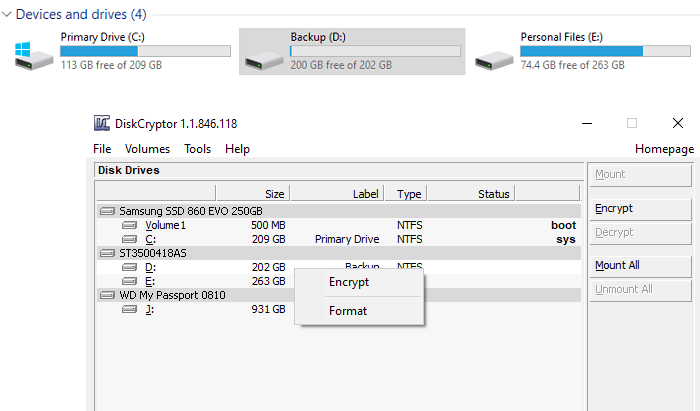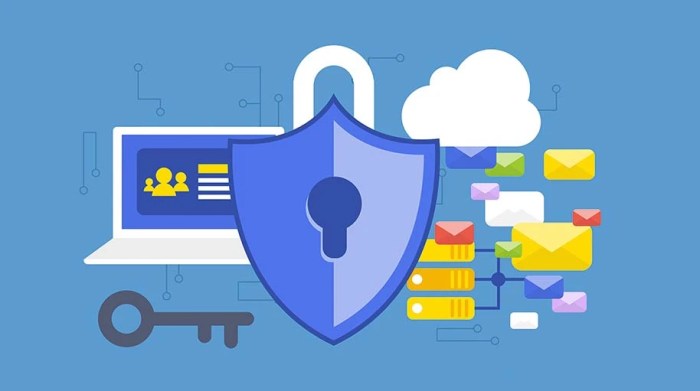In today’s interconnected world, data security is paramount. Whether you’re a business professional handling sensitive client information or an individual safeguarding personal files, drive encryption is a crucial layer of protection against unauthorized access. This comprehensive guide explores the best drive encryption software available, offering a detailed analysis to help you choose the right solution for your needs.
We’ll cover various aspects, including features, ease of use, compatibility, and security protocols, ultimately empowering you to make an informed decision.
Understanding Drive Encryption: Why It Matters: Best Drive Encryption Software
Drive encryption is the process of converting readable data into an unreadable format, known as ciphertext, using a cryptographic key. This key is essential for decryption, transforming the ciphertext back into readable data. Without the correct key, accessing the encrypted data is practically impossible, even for sophisticated hackers. This robust protection safeguards your data from various threats, including:
- Theft or loss of devices: If your laptop or hard drive is stolen or lost, encrypted data remains inaccessible to the thief.
- Malware attacks: Even if malware infects your system, encrypted data remains protected.
- Unauthorized access: Drive encryption prevents unauthorized individuals from accessing your sensitive information.
- Data breaches: In the event of a data breach, encrypted data is significantly more difficult to compromise.
Choosing the right encryption software depends on several factors, including the operating system you use (Windows, macOS, Linux), the level of security required, and your budget. Let’s delve into some of the top contenders.
Top Drive Encryption Software Options
BitLocker (Windows)
BitLocker is a built-in full disk encryption feature in Windows operating systems (Windows 7 and later). It offers robust AES encryption and is a reliable choice for Windows users. BitLocker’s strength lies in its integration with the operating system, making it a seamless solution for many. However, it might lack some advanced features found in third-party solutions.

Source: thewindowsclub.com
FileVault (macOS)
Similar to BitLocker, FileVault is Apple’s built-in disk encryption utility for macOS. It provides strong encryption for your entire hard drive or specific volumes. FileVault’s user-friendliness and integration with the macOS ecosystem make it a popular choice for Apple users. Its simplicity is a major advantage, but advanced customization options might be limited compared to other software.
VeraCrypt
VeraCrypt is a free and open-source disk encryption software compatible with Windows, macOS, and Linux. It’s known for its strong security and flexibility, offering various encryption algorithms and options for creating encrypted containers or encrypting entire drives. VeraCrypt’s open-source nature allows for community scrutiny, enhancing its trustworthiness. While powerful, its interface might seem less intuitive to beginners compared to proprietary options.
CipherShed, Best drive encryption software
CipherShed is a cloud-based encryption solution that provides end-to-end encryption for your files. It offers a user-friendly interface and integrates well with various cloud storage services. This is an excellent choice for users who want secure cloud storage with a focus on simplicity and accessibility. The reliance on a cloud service might be a concern for some users prioritizing complete control over their data.

Source: techjockey.com
DiskCryptor
DiskCryptor is another free and open-source option, focusing on full disk encryption. It supports various encryption algorithms and offers features like pre-boot authentication. Its open-source nature contributes to its transparency and security, making it a reliable choice for users who value community scrutiny. Like VeraCrypt, its interface may not be as polished as commercial options.
Choosing the Right Encryption Software: Key Considerations
Selecting the best drive encryption software involves careful consideration of several factors:
- Operating system compatibility: Ensure the software is compatible with your operating system.
- Encryption algorithms: Look for strong encryption algorithms like AES-256.
- Ease of use: Consider the software’s user interface and how easy it is to use.
- Features: Assess features like pre-boot authentication, encrypted containers, and compatibility with various file systems.
- Performance impact: Some encryption software can impact system performance. Consider the trade-off between security and speed.
- Cost: Determine whether you need a free or paid solution.
- Support: Check the availability of technical support and documentation.
Frequently Asked Questions (FAQ)
- Q: Is drive encryption necessary for everyone? A: While not mandatory for all users, drive encryption is highly recommended for individuals and businesses handling sensitive data. The level of necessity depends on the sensitivity of the data being protected.
- Q: Will drive encryption slow down my computer? A: Yes, encryption can slightly impact performance, but modern encryption algorithms and hardware acceleration minimize this impact. The performance hit is generally manageable for most users.
- Q: What happens if I forget my encryption password? A: Losing your encryption password means irreversible data loss. Choose a strong, memorable password and consider using a password manager.
- Q: Can I encrypt only specific files or folders? A: Yes, many encryption software options allow you to encrypt individual files, folders, or entire drives. This flexibility allows you to tailor your security strategy to your specific needs.
- Q: Is cloud-based encryption secure? A: Cloud-based encryption can be secure if the provider uses robust encryption methods and adheres to strict security protocols. However, it’s crucial to research the provider’s security practices before entrusting your data.
- Q: What is the difference between full disk encryption and file-level encryption? A: Full disk encryption protects the entire drive, while file-level encryption protects individual files or folders. Full disk encryption offers broader protection, but file-level encryption provides more granular control.
Conclusion
Choosing the right drive encryption software is a crucial step in safeguarding your valuable data. By carefully considering your needs and evaluating the features of different software options, you can effectively protect your information from unauthorized access and various security threats. Remember to prioritize strong encryption algorithms, ease of use, and reliable support when making your selection.
Call to Action
Protect your data today! Choose the drive encryption software that best suits your needs and start securing your valuable information. Research the options discussed in this guide and take the first step towards enhanced data security.
Commonly Asked Questions
What is the difference between full disk encryption and file encryption?
Full disk encryption protects the entire drive, while file encryption only protects specific files or folders. Full disk encryption offers broader protection but can be slower.
Is drive encryption compatible with all operating systems?
Most encryption software supports major operating systems like Windows, macOS, and Linux, but compatibility should be verified before purchase.
What happens if I forget my encryption password?
Recovering data with a forgotten password is often impossible. Choose a strong, memorable password and consider using a password manager.
How does drive encryption impact performance?
Encryption can slightly decrease performance, but modern hardware and software minimize this impact. The performance hit is generally negligible for most users.
